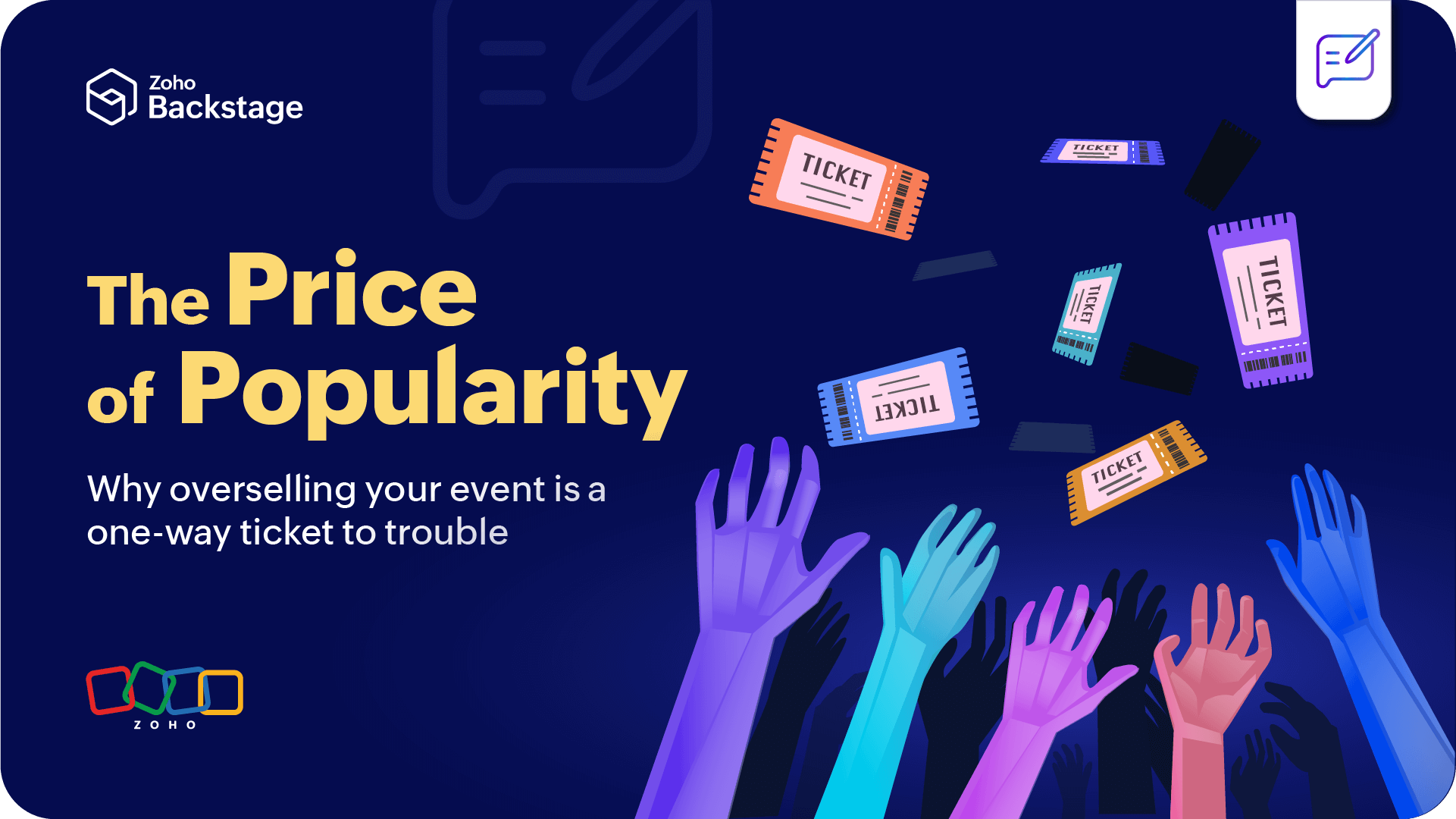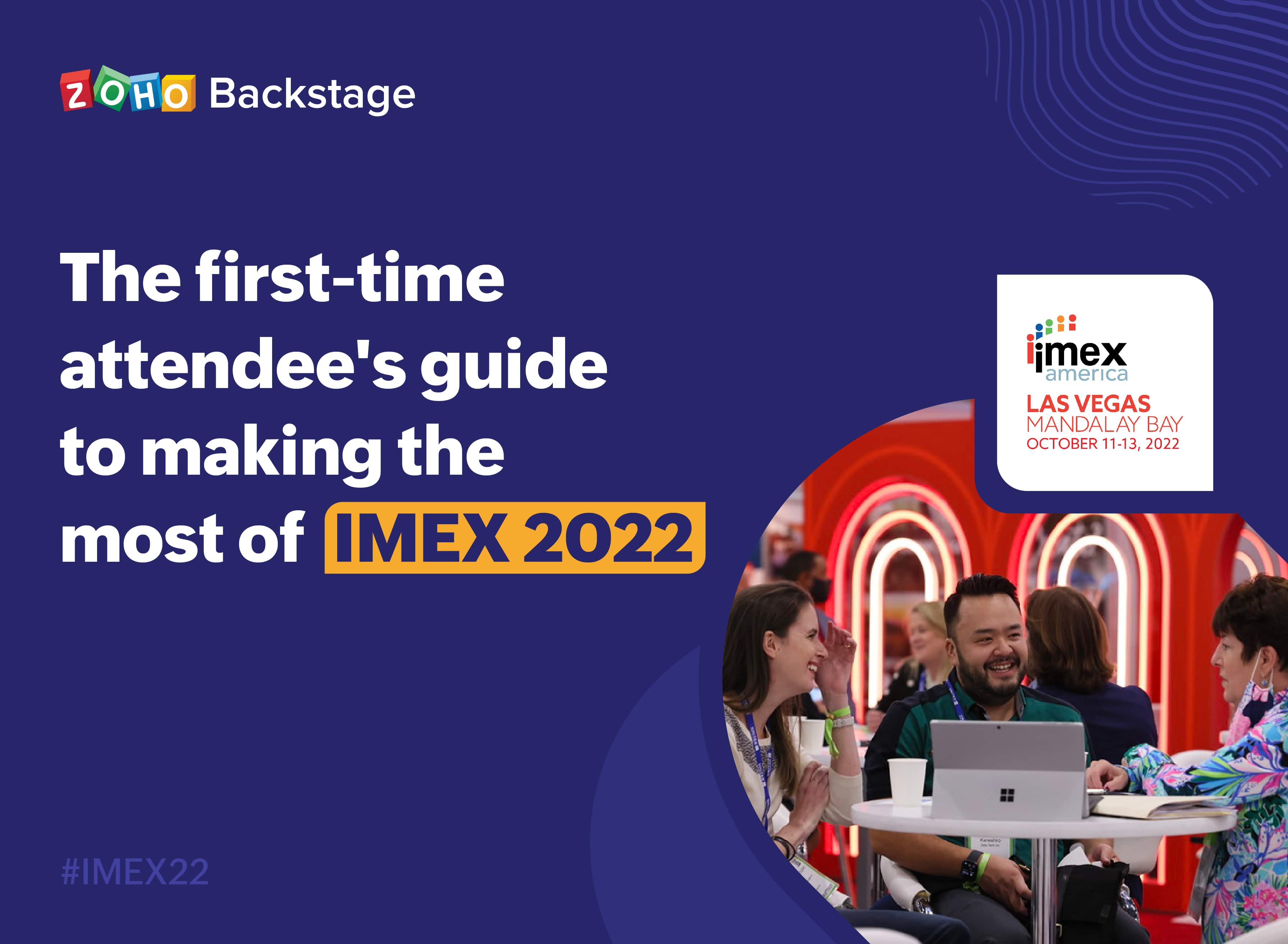The price of popularity: Why overselling your event is a one-way ticket to trouble
- Last Updated : September 12, 2024
- 1.4K Views
- 4 Min Read

It’s all fun and games until the fire marshal shows up.
In the rush of climbing ticket sales, it's tempting to toss caution to the wind and oversell your event. After all, who wants to put a cap on popularity? But beware, event planners: overselling can bring legal woes, safety concerns, and the withering glare of attendees crammed tighter than sardines in a tin.
The phrase "sold out" is often chased like the holy grail of achievements, but hold your horses—or, rather, your ticket printer.
To avoid the pitfalls associated with overselling, it’s essential to adopt a balanced approach. In this blog, we’ll explore strategies to present your event in an authentic, compelling manner without crossing into the dangerous territory of overselling.
The dangers of overselling
In this section, we will delve into the various hazards associated with overselling, encompassing safety concerns, legal and compliance challenges, and the potential damage to an event organizer's reputation.
Safety Concerns
One of the most grave and immediate repercussions of overselling is the direct threat to attendee safety. Overcrowding can lead to:
Restricted access to exits: In cases of emergency, an oversold event can turn into a catastrophic scenario, with attendees struggling to access exits, leading to panic and potential injuries.
Overburdened amenities: Essential amenities like restrooms and food stations become overburdened, leading to long queues and attendee discomfort.
Health risks: In today’s health-conscious world, overcrowding can also elevate the risk of spreading illnesses, an especially pertinent concern in the aftermath of the global pandemic.
Compromised security: Security personnel can become overwhelmed, making it difficult to manage the crowd effectively and respond to security issues promptly.
Legal and Compliance Challenges
Exceeding venue capacity isn't just an organizational hiccup—it can lead to serious consequences. From safety violations to breach of contractual obligations, the legal ramifications are both expensive and damaging to the event’s and organizers’ reputations.
Damage to Reputation
In the age of social media, a misstep is as viral as a catchy tune. Ensure communication lines are as open and efficient as a well-oiled machine. In the unforeseen circumstance of an oversold event, swift, sincere, and strategic communication can mean the difference between a PR nightmare and a recoverable hiccup.
Negative experiences can be shared globally within seconds, irreparably damaging the reputation of event planners. The Fyre Festival, for instance, became a cautionary tale, a meme, and a subject of documentaries, forever staining the reputations of those involved.
Every event is a stepping stone, each attendee a potential repeat guest or a fountain of referrals. Overselling doesn’t just risk the night—it gambles with your reputation.
Strategies to avoid overselling
Now that we know what we want to avoid, let's get into the 'how's.
Capacity Assessment
Begin with a thorough assessment of the venue's capacity. Factor in the space required for amenities and emergency exits. Aligning the number of tickets sold with the venue's capacity is fundamental.
Dynamic Ticket Management
A robust ticketing system is your first line of defense against overselling. A well-designed system can track real-time ticket sales, provide insights on the pace of sales, and automatically halt sales once the event is sold out. Incorporating features like personalized tickets can also minimize scalping and unauthorized resales, ensuring that the attendee count remains within the safe limits of the venue’s capacity. Embrace technology that monitors real-time ticket sales, offering instant insights and automation to halt sales once you hit the golden number.
Waitlists
Implement a waitlist to manage excess demand. It allows you to gauge interest and provides an opportunity to accommodate more attendees if resources permit, all without overstepping the limits.
Expectation Management
You've planned something spectacular, and obviously, the entire world must know. But wait—before you compare your annual office bake-off to The Great British Bake Off, take a breath.
Clearly communicate what is included in ticket prices, who the speakers are, what the schedule looks like, and other key details. Avoid vague terms and marketing jargon. Being explicit about these details ensures that attendees have a clear understanding of what to expect.
Quality Focus
In the world of events, there’s an unspoken cardinal rule: always deliver more than you promise—because nobody likes a party that promises fireworks and delivers sparklers.
Ultimately, the most effective way to avoid overselling is by delivering a quality experience. Focus your energy on planning and executing an exceptional event. When the experience speaks for itself, there’s no need for excessive embellishments.
Preparing for the unexpected
It never hurts to be prepared for everything. Here are some important considerations to ensure you're ready in case of emergencies.
Contingency Plans
Have a well-crafted plan for managing unexpected attendee influx. Prepare staff to manage crowd control, and consider allocating spaces that can be opened up to accommodate extra guests without compromising safety or experience.
Attendee Experience
Make sure attendee experience at the forefront of your planning. An event transcends the ephemeral moments of music, laughter, and clinking glasses. Every ticket sold is a contract, an unspoken pact of trust that assures safety and enjoyment. Breaching this trust doesn’t just sour one evening; it’s a blot on the ledger of credibility that’s hard to erase. Be accountable, and let every ticket be a bond of trust, not just a stub in the hand.
Feedback
Incorporate a mechanism to receive real-time feedback from attendees. Addressing issues promptly can mitigate the impact of overselling, turning potential negatives into positives.
Conclusion
Be the James Bond of event planning, not the used car salesman. Your guests will thank you when they realize that in a world of over hyped, overpriced soirees, yours, with all its elegant understatement, is pure gold.
Remember—sometimes the magic isn’t in packing the house, but in creating an experience so exquisite, so perfectly exclusive, that it lives on in legend, not in legal precedents. Happy planning!
 Lavanya
LavanyaMarketer by day, geek extraordinaire by night—You can often find me at gig nights or the philosophy sections of bookstores. In my free time, I usually got headphones on, lost in an audiobook or podcast while indulging in my latest hobby, aka hyperfixation du jour. I like to travel to make feline friends everywhere I go. Sometimes I write. Join me as I navigate through the event industry!






